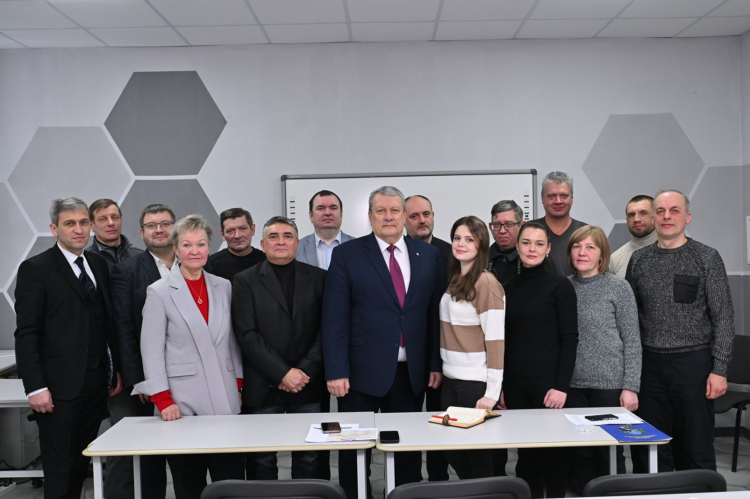Ректор Університету Вадим ТКАЧУК провів робочу зустріч з працівниками кафедри технології конструкційних матеріалів та матеріалознавства

14 січня 2026 року ректор Національного університету біоресурсів і природокористування України, член-кореспондент НААН Вадим ТКАЧУК провів робочу зустріч з працівниками кафедри технології конструкційних матеріалів та матеріалознавства. На порядку денного винесено три блоки питань: блок «Менеджмент та кадри», блок «Наука та фінанси» і блок «Освітній процес».

На початку зустрічі завідувач кафедри технології конструкційних матеріалів та матеріалознавства Костянтин ЛОПАТЬКО представив план розвитку кафедри на 2026 календарний рік.

Ректор Університету Вадим ТКАЧУК, в обговоренні заходів з реалізації встановлених завдань перед кафедрою на 2026 рік, акцентував на необхідності збільшення чисельності науково-педагогічних і педагогічних працівників кафедри. Залучення саме штатних наукових працівників кафедри до подання заявок і виконання грантових проєктів. Необхідності забезпечення задекларованої на 2026 рік кількості наукових публікацій в журналах з індексацією Scopus за квартилями Q1 і Q2.

В ході дискусію вирішили:
-
доповнити Хорольським механічним заводом і ПлазмоТехом перелік баз виробничих практик для здобувачів вищої освіти освітньо-професійної програми «Машинобудування» спеціальності G11 «Машинобудування» бакалавратури факультету конструювання та дизайну;
-
більш активно залучати стейкхолдерів з Асоціації підприємств сільськогосподарського машинобудування, Асоціації «Ліга машинобудівників та роботодавців України «Укрмашбуд», Українського Союзу промисловців і підприємців до оновлення матеріально-технічної бази кафедри;
-
збільшити активності з популяризації інноваційних проєктів кафедри, що пов’язані з застосуванням наноматеріалів у виробничих процесах.
У підсумку робочої зустрічі, Вадим ТКАЧУК побажав працівникам кафедрі відповідальності й успішності у виконанні задекларованих завдань на 2026 рік.
